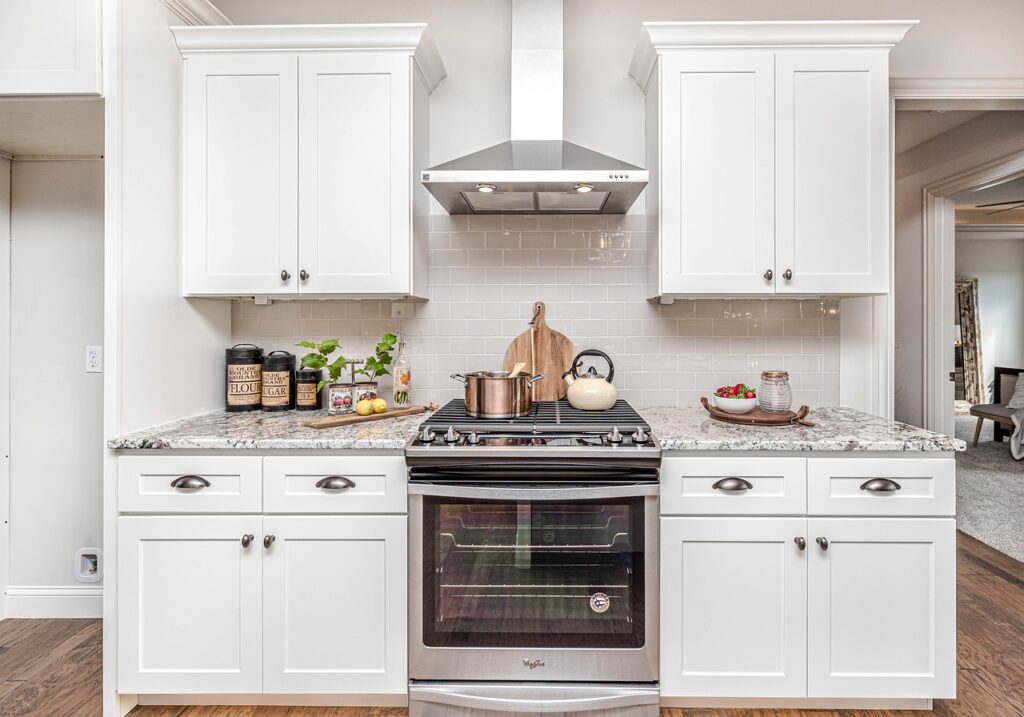Your oven is one of the most frequently used appliances in your kitchen, but it’s often overlooked when it comes to regular cleaning. While wiping down the exterior and stovetop might be part of your routine, the inside of the oven tends to accumulate grease, food splatters, and burnt-on residue over time. Neglecting this buildup can lead to several problems, including unpleasant odors, inefficient cooking, and even potential fire hazards. In this blog, we’ll explain why cleaning the inside of your oven is essential, how often you should do it, and tips for keeping it spotless and safe.
- Preventing Kitchen Fires
One of the most important reasons to keep your oven clean is to reduce the risk of fire.
How grease and food residue cause fires:
When grease and food particles accumulate on the oven walls, racks, or floor, they can catch fire if they overheat.
High temperatures or a broiler setting can ignite leftover crumbs or drippings.
Even small flare-ups can create a dangerous situation and cause damage to the oven’s interior.
Warning signs of fire risk:
Excessive smoking when you use the oven.
A burning smell, even when no food is inside.
Discoloration or scorching on the oven walls or racks.
Tip: Regularly cleaning the interior of your oven removes flammable buildup, significantly reducing the risk of a dangerous kitchen fire.
- Improving Oven Efficiency and Performance
A dirty oven doesn’t just look unpleasant—it also affects its performance.
How grime impacts cooking efficiency:
Uneven heating: Burnt-on residue can block heat distribution, causing hot spots that lead to unevenly cooked food.
Reduced energy efficiency: When your oven has to work harder to reach and maintain the desired temperature due to grime buildup, it uses more energy, which can increase your utility bills.
Longer preheat times: A dirty oven may take longer to heat up, making cooking more time-consuming.
Tip: Cleaning the oven regularly helps it heat evenly and cook food more efficiently, saving both time and energy.
- Enhancing Food Quality and Flavor
When food splatters or grease from previous meals remains inside the oven, it can negatively impact the flavor of your dishes.
How residue affects food quality:
Lingering odors: Old grease and burnt-on food can create unpleasant smells that transfer to the food you’re cooking.
Flavor contamination: Residue can create smoky flavors or cause your food to taste stale or bitter.
Inconsistent baking results: Grime buildup can interfere with the accuracy of temperature sensors, leading to undercooked or overcooked food.
Tip: A clean oven allows your food to retain its intended flavor and aroma, making your meals taste fresher and more appetizing.
- Prolonging the Lifespan of Your Oven
Regular cleaning can extend the life of your oven and prevent costly repairs.
How buildup damages the oven:
Strain on heating elements: Grease and food particles can clog vents or coat the heating elements, reducing their efficiency and causing them to overheat.
Corrosion and staining: Acidic food spills, such as tomato sauce or citrus juices, can cause staining or even corrode the oven’s interior over time.
Wear on seals and gaskets: Grime around the oven door seals can prevent them from closing properly, leading to heat loss and inefficient cooking.
Tip: By keeping your oven clean, you reduce the risk of wear and tear, helping the appliance last longer.
- Maintaining a Cleaner, More Hygienic Kitchen
A dirty oven doesn’t just affect cooking—it can also contribute to an unclean kitchen environment.
How a dirty oven impacts cleanliness:
Smoke and odors: Residue inside the oven can create excessive smoke when cooking, which clings to nearby surfaces and contributes to a grimy kitchen atmosphere.
Bacteria growth: Food particles left behind can harbor bacteria, especially if the oven is infrequently used.
Unpleasant cooking experience: Cleaning the oven regularly keeps your kitchen smelling fresh and reduces the need for frequent vent hood cleaning.
Tip: A clean oven helps maintain overall kitchen cleanliness and creates a more pleasant cooking space.
Conclusion
Cleaning the inside of your oven is about more than keeping it looking tidy—it’s a key part of kitchen safety, efficiency, and appliance longevity. Regular maintenance helps prevent dangerous grease fires, improves cooking performance, and ensures your food tastes as it should. By making oven cleaning a regular part of your household routine, you’ll enjoy safer, more efficient, and better-tasting cooking experiences.

